COGA Fact Sheet: Public Safety
Colorado’s oil and natural gas companies are working hard every day to make a safe industry that much safer. By keeping our employees safe at the wellhead and beyond, we keep Colorado communities safe as well. Below are some of the ways Colorado’s energy industry is prioritizing public safety.
The state of Colorado is a national leader in its commitment to fostering safe and responsible development of Colorado’s oil and natural gas resources. Great care and effort is taken by our state regulatory bodies, independent energy operators, and various organizations to ensure the health and safety of Colorado’s citizens.
Public Safety Initiatives
Colorado Oil and Gas Conservation Commission (COGCC) Emergency Response Plan:
During an emergency, this plan exists so that all contact, communication, questions, and provided information to and from the Commission with local first responders and operators within a concerned geographic area are coordinated in order to manage any emergency response scenario effectively. Emergencies can range from statewide issues to local issues and may include events such as floods, fires, tornados, severe thunderstorms, high water, drought, high winds, and unforeseen accidents.
Colorado Oil and Gas Association (COGA) Operational Safety Committee:
This committee is a commonwealth on safety, environmental, regulatory, and community issues, as well as a resource for sharing best management practices, operational lessons learned, first responder education, and major incident prevention.
Colorado 811:
Colorado’s one-call system exists to protect our statewide underground infrastructure, promote excavator and public safety education, and to ensure compliance with applicable regulations. Colorado’s oil and natural gas industry supported bipartisan legislation passed in 2018 and signed into law in order to strengthen 811 enforcement authority and improve public safety protocols.
Flowline/Pipeline Regulations:
Following the tragic accident that occurred in Firestone in April 2017, the state ordered a comprehensive testing of flowlines to ensure that no similar circumstance existed. Over 120,000 flowlines were tested with a passage rate of 99.65 percent. Out of the 0.35 percent that did not pass, they were repaired or taken offline, and none included any leaks of reportable size. In the months that followed, a detailed and highly technical regulatory rulemaking was placed into law to prevent such an accident from occurring again.
Spill Reporting:
If a spill occurs, oil and natural gas operators must complete a COGCC Form 19 Spill/Release Report, detailing any leakage or spill events that may impact waters. Any spill of five barrels or more, and any spill of one barrel or more that occurs outside secondary containment, must be reported within 24 hours.
COGCC Complaint Submission Platform:
Any member of the public can file a grievance or concern with the COGCC as it relates to oil and gas operations and the COGCC is required to respond to each complaint.
Governor Technical Safety Work Group:
Over the past year the oil and natural gas industry collaborated with Governor Hickenlooper to develop a technical working group to improve safety training, practices, and communication amongst oil and natural gas industry operators in Colorado. As part of that effort, the first-ever Energy Safety Summit took place in June of 2018, in coordination with the state, COGA, and a majority of the state’s 13 operational safety organizations.
Environmental Regulations & Rulemakings
2010
Clean Air, Clean Jobs Act (HB-1365)
2013
Baseline Water Quality Sampling Rulemaking
2013
Spills and Releases Rulemaking
2014
Air Emissions from Oil and Gas
2015
Flood Lessons Learned Rulemaking
2016
State Implementation Plan (SIP)
2017
Emissions requirements for oil and gas (CHPHE)
2018
Flowline rulemaking
2011
Hydraulic Fracturing Disclosure Rulemaking
2013
Setback Rulemaking
2013
Wildlife Map Update Rulemaking
2015
Enforcement and Penalty Rulemaking
2016
Governor’s Oil and Gas Task Force Rulemaking
2016-2017
AQCC CTG Rulemaking & Reg 7 Revisions
2018
Pooling & Hearing Process Clean-Up Rulemaking
2018
Orphan Well Executive Order
More oil and natural gas industry regulations, safety, and COGA Fact Sheet available online
Colorado's Improving Health Conditions
Using data from the Center for Disease Control and Prevention (CDC) and the Colorado Department of Public Health and Environment (CDPHE), recent analysis was conducted by Energy In Depth. Between 2002 and 2015, oil and natural gas production in Weld County increased by 12 times and three times respectively, with well counts more than doubling. During that same timeframe the rates of death for cancer, respiratory illness, and heart disease decreased by 1.9 percent, 9.1 percent and 21.4 percent, respectively. Sizeable energy production and improving health conditions in Weld County, the state’s largest oil and natural gas producing county, confirms that health, safety, and energy production are not mutually exclusive.
Additional Resources & Information
Colorado Oil & Gas Conservation Commission (COGCC) | www.cogcc.state.co.us
Colorado Department of Public Health & Environment | www.colorado.gov/cdphe



